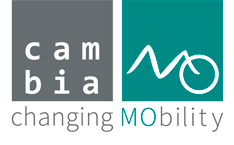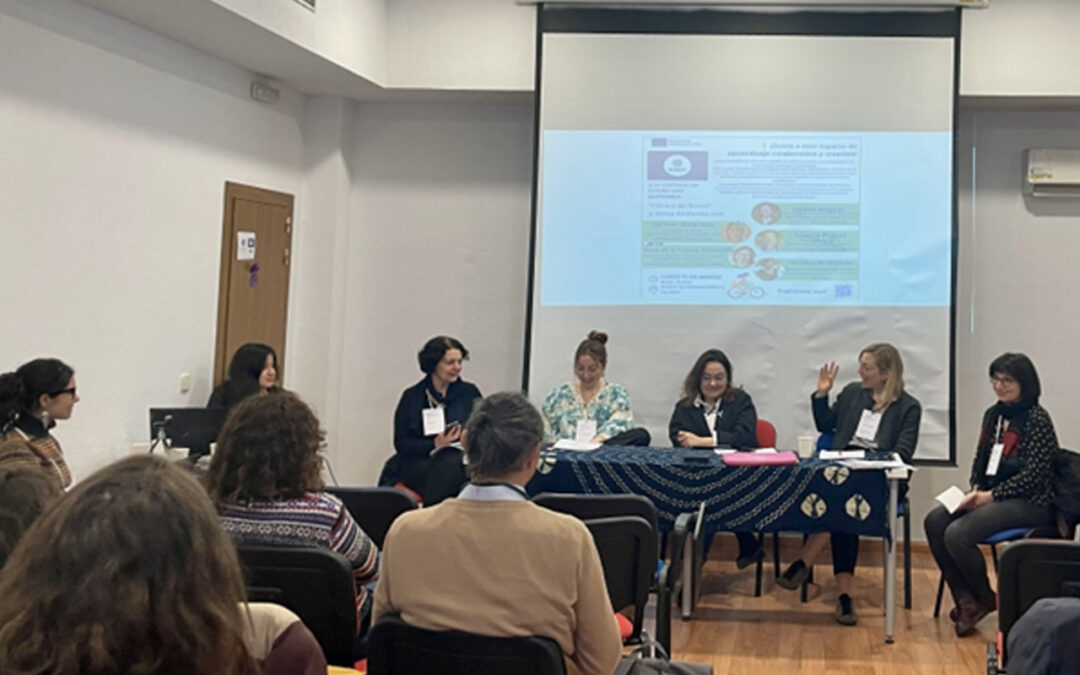Project title: REthinking and FOstering Competence and skills for sUstainable transport, Shipping, and logistics
Contract number: 2022-1-EL01-KA220-HED-000087737
Venue: cambiaMO at La traviesa, calle Duque de Fernán Nuñez, 2, 1st floor, Madrid, Spain
The REFOCUS 2nd Multiplier Event took place in Madrid on March 10, 2025, bringing together professors, activits, researchers and industry professionals to discuss one of the most pressing challenges of our time: how can we integrate climate justice and sustainability into education and professional training?
Hosted by cambiaMO and Andaira, the event featured interactive Challenge Clinics and a roundtable discussion, where experts and stakeholders debated ways to bridge the gap between academic knowledge and real-world sustainability action.
Challenge Clinique Discussion Points:
1. Advancing Climate Literacy in Education
A recurring theme throughout the Challenge Clinique discussions was the urgent need to rethink how climate literacy is taught. While sustainability is increasingly part of university curricula, many programs still fail to equip students with practical tools for action. As Carmen Duce Díaz (Ecologistas en Acción) pointed out, bridging academia and activism is crucial to ensuring that future professionals can engage meaningfully with climate challenges.
Beyond content, how climate literacy is delivered matters just as much. Sinéad Magner (UNFCCC Women & Gender Constituency) highlighted that many students feel overwhelmed by climate crises, underscoring the importance of emotional resilience strategies and support in climate education, ensuring that young people are equipped not just with knowledge, but with the ability to act.
Additionally, concerns were raised about the accessibility of unbiased climate information. Jeroen Pruyn, Director of Studies for the BCs Marine Technologies at TU Delft, noted that many students struggle to find neutral and comprehensive resources on sustainability. This lack of access often leads to polarized views or disengagement. He emphasized the importance of ensuring high-quality, evidence-based climate education across disciplines.
2. Embedding Just Transition Principles into Professional Training
Discussions then shifted to the need for equity in professional training, particularly in transport and mobility planning. Inclusive infrastructure—such as bike lanes and pedestrian-friendly spaces—must consider gender, accessibility, and social justice, yet these principles are rarely embedded in urban planning curricula. Ioanna Pagoni from the University of the Aegean raised an important issue: many engineering and urban planning curricula still do not teach students how to design inclusive infrastructure. She called for a fundamental shift in how sustainability is embedded into technical education, ensuring that future professionals understand the social dimensions of mobility planning.
Floridea Di Ciommo, Director of cambiaMO, further elaborated on the role of interdisciplinary collaboration. She argued that sustainable transport solutions require input not only from engineers but also from social scientists, urban planners, and policymakers. Without a holistic and participatory approach, transport systems risk reinforcing existing inequalities.
3. Overcoming Barriers in Implementing Sustainability Curricula
A key challenge raised was the barriers to implementing sustainability-focused curricula. While some countries, such as Spain, Greece, and the Netherlands, have introduced mandatory sustainability courses, coverage remains inconsistent. However, Athena Tsirimpa, professor at the American College of Greece, pointed out that even when sustainability courses are introduced, their effectiveness also depends on the educators themselves. If professors are not well-trained in sustainability topics, the information provided may be superficial or disconnected from real-world challenges. She emphasized the need for professional development programs to ensure that sustainability education is high-quality, practical, and interdisciplinary.
Another key issue discussed was the risk of relying too heavily on technological solutions. While innovation plays an important role, climate education must also focus on governance, behavior change, and policy frameworks. This shift is essential to prepare students not just to develop new technologies, but to implement them in socially just and effective ways.
Roundtable Discussion: From Policy to Practice
As the event progressed, the roundtable discussion provided deeper insights into turning sustainability principles into concrete academic and policy reforms.
Rosa M. de la Fuente Fernández (Professor of political geography and Vice-Rector of UCM) emphasized that universities must go beyond merely offering sustainability courses. She argued that institutional incentives should actively support faculty and students working on climate-related projects, ensuring that sustainability is integrated into research, campus initiatives, and professional training programs.
Ioanna Pagoni (Professor at the University of the Aegean) further expanded on the importance of aligning sustainability education with labor market needs. She stressed that universities must work closely with industry stakeholders, policymakers, and civil society to ensure that students receive practical training and real-world experience. One of the key innovations in the REFOCUS project has been the Community of Practice (CoP) approach, which allows educators and students to collaborate directly with professionals on sustainability challenges.
Another critical topic was the global implications of the clean energy transition, particularly in relation to critical mineral extraction. Carmen Duce Díaz (Coordinator of Ecologistas en Acción) warned that the push for renewable energy and electric vehicles must not come at the expense of communities in the Global South, where mining operations often lead to displacement, environmental destruction, and human rights violations. She called for a more responsible approach to sourcing raw materials, ensuring that sustainability efforts in one part of the world do not create new injustices elsewhere.
Sinéad Magner (Coordinator of Policy and Programs at WEDO) added that Just Transition policies should not only focus on fossil fuel workers but also on labor and resource extraction in the broader green economy. She urged policymakers and educators to adopt a systems-thinking approach, recognizing that sustainability solutions must be designed in a way that is socially just and globally equitable.
Moving Forward: Concrete Actions for Change
The REFOCUS Multiplier Event reinforced that achieving a just and sustainable transition requires action on multiple levels:
- Universities must fully integrate climate literacy and Just Transition principles across disciplines, ensuring sustainability is treated as a core competency rather than an optional topic.
- Policymakers must remove institutional barriers and support sustainability education with funding and curriculum reforms.
- Industry must align professional training with sustainability goals, while also ensuring partnerships avoid greenwashing.
- Transport and mobility planning must prioritize inclusive, people-centered infrastructure, recognizing the social dimensions of mobility.
A Call to Action
This event made it clear that progress is being made, but critical gaps remain. Embedding sustainability and social justice into education and professional training is not just an academic issue—it is a necessity for an equitable, livable future.
Moving forward, we must continue building connections between academia, policy, and industry to ensure sustainability education translates into real-world impact.
What are the next steps? How can we make climate literacy and just transition education the norm rather than the exception? Join the conversation.







